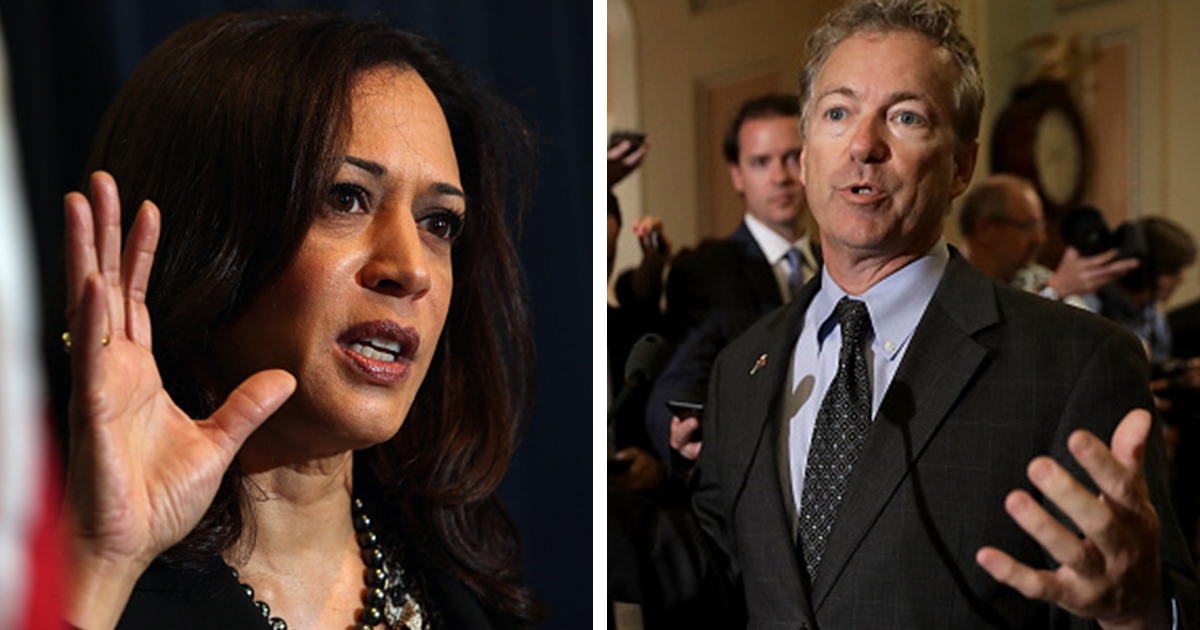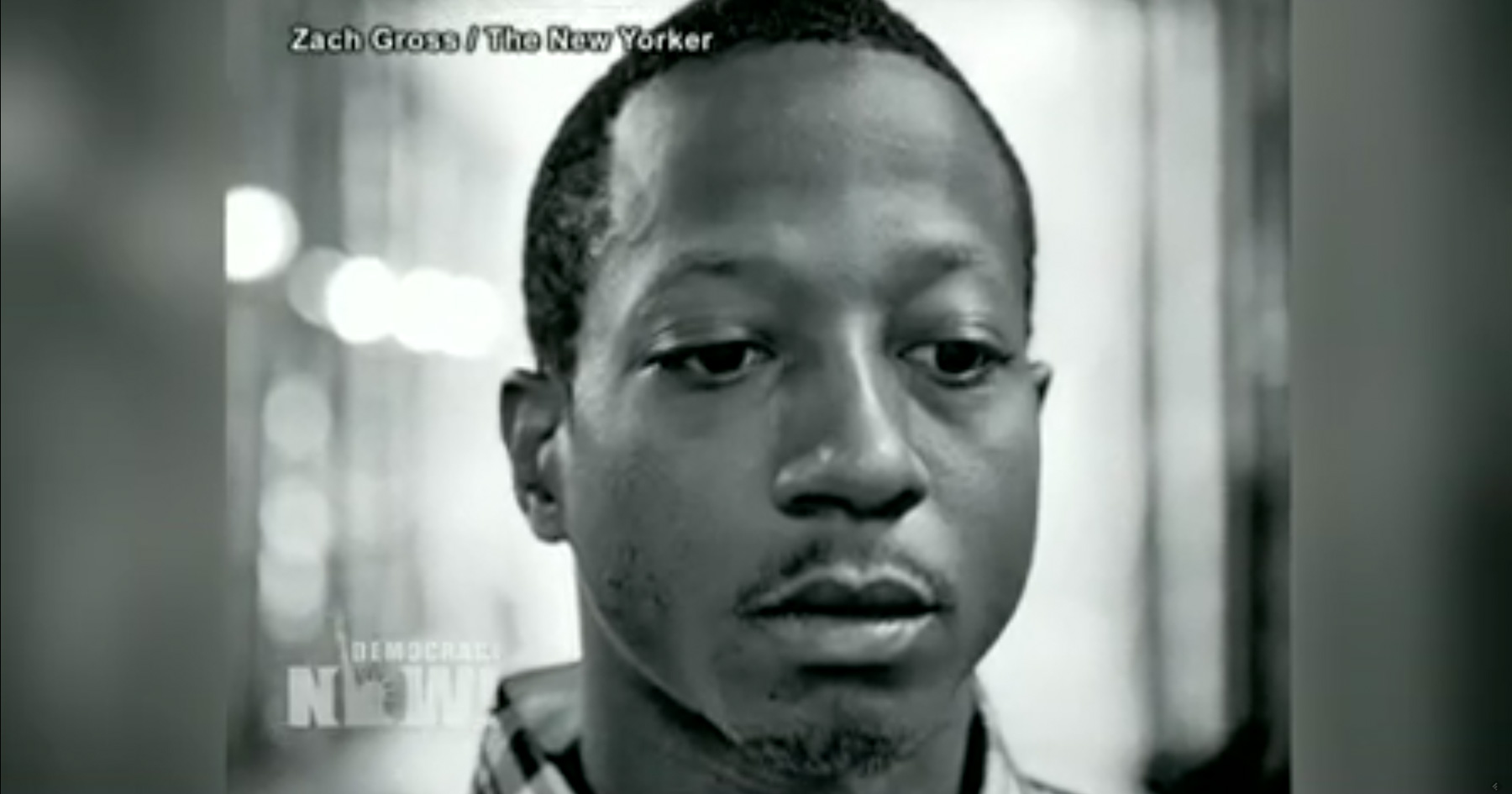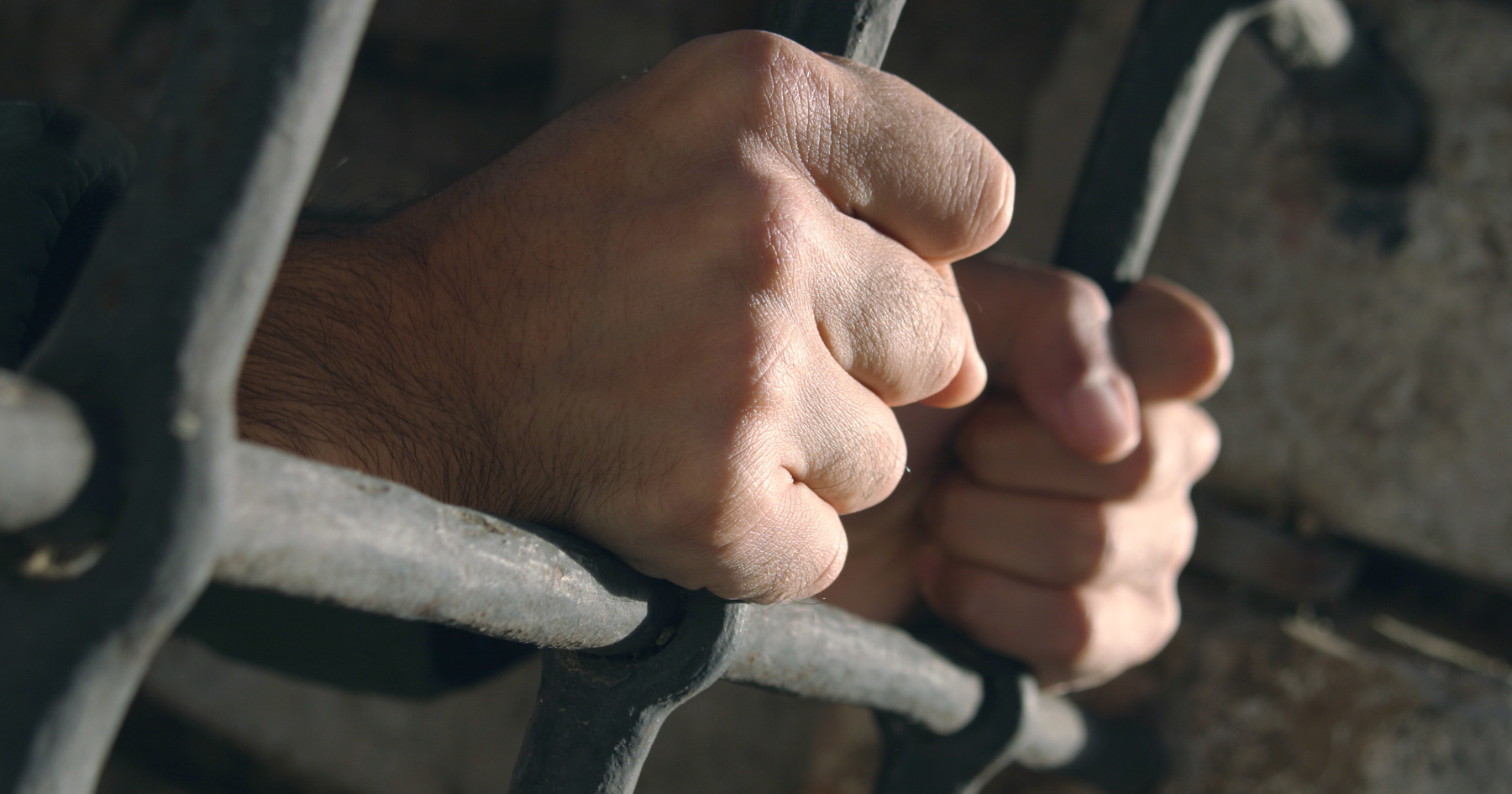Bipartisan Bill Would Reform "Unfair" Money Bail
By:
Right now there are hundreds of thousands of Americans sitting in jail awaiting trial, and many are there because they cannot afford the cost of bail.
 JoshuaDavisPhotography - flickr.com
JoshuaDavisPhotography - flickr.com
In what might be considered an old-fashioned resurgence of bipartisanship, two U.S. Senators—progressive Kamala Harris (D-CA), and the libertarian-leaning Rand Paul (R-KY)—introduced a bill Thursday to encourage states to reform the practice of using money bail as a condition of pretrial release in criminal cases.
 Associated Press - gettyimages.com
Associated Press - gettyimages.com
The idea behind making a defendant post bail is that they are less likely to try to avoid trial. But the Pretrial Integrity and Safety Act encourages an “evidence-based” approach to making sure defendants return to court and would provide a 3-year, $10 million grant to states if they perform “individualized, pretrial assessments” on defendants awaiting trial and release those who don't pose a risk of flight or danger to society.
The bill lays out a series of benchmarks for state and tribal court systems accepting federal grants, and goes on to say that any state receiving support must report on its progress and make sure that reforms like risk assessments are not discriminatory.
In a joint op-ed in the New York Times timed with the bill’s release, Harris and Paul highlighted the story of Kalief Browder, the 16-year-old New Yorker who killed himself two years after being released from New York's Rikers Island jail.
 Democracy Now/The New Yorker - democracynow.org
Democracy Now/The New Yorker - democracynow.org
Browder spent three years awaiting trial on suspicion that he stole a backpack because his family could not afford his bail.
Harris and Paul note in their op-ed that the Pretrial Justice Institute found that bail reform could save U.S. taxpayers $78 billion annually.
The institute's January 2017 report lists the following costs associated with holding low-risk suspects on bail:
- $14 billion in direct costs to American taxpayers to detain people who are mostly low risk and accused of nonviolent offenses, with collateral costs estimated at $140 billion annually.
- $75 million in nonrefundable bondsmen fees collected in just one year from mostly low-income people in cases that were dropped or found not guilty in Maryland
- Courts would see $78 billion in annual savings and benefits if they used evidence-based risk assessment tools in release decisions, instead of money bail.
In a statement attached to the legislation, Vanita Gupta, president and CEO of The Leadership Conference on Civil and Human Rights, said she applauded Senators Harris and Paul for introducing the bill.
“Money bail systems are ineffective, expensive, and are unfair to defendants, the general public, and people of color. It’s a sad fact that if you’re an African-American or Latino person charged with a crime, you are not only more likely to be detained pre-trial because you are unable to afford bail; you’re also more likely to be charged a higher bail amount.”
There's “groundswell of interest” in reforming cash bail.
 Looby - bigstockphoto.com
Looby - bigstockphoto.com
Zanieb Mohammed, a spokesperson for the Ella Baker Center for Human Rights, told ATTN: that attention has spiked about how bail “punishes people for being poor.”
“There has been a groundswell of interest in this issue among Americans and I think all of the attention focused on this issue now should help the (Harris/Paul) bill in Congress,” Mohammed said.
In April, Human Rights Watch released a report showing how California’s pretrial bail system unfairly punishes the poor.
"People accused of crimes but unable to afford bail give up their constitutional right to fight the charges because a plea will get them out of jail and back to work and their families," the report states. "Judges and prosecutors use custody status as leverage to pressure guilty pleas."
Bail reform is advancing in the states.
The prognosis of the Harris/Paul bill is hard to determine. Democratic senators Cory Booker and Richard Blumenthal introduced legislation aimed at reducing mass incarceration last month, but the bill when nowhere in a GOP-controlled Senate.
However, there has been movement at the state and county level. On Monday, an Illinois judge ordered the reform of the bail system in Cook County, which includes Chicago. Now a defendant in Cook County who cannot pay bail, and poses no flight risk or danger to the public, will not remain incarcerated before trial.
A bill introduced by California State Sen. Bob Hertzberg is working its way through the legislature. That bill, SB 10, could release many of the estimated 46,000 defendants waiting in jail who are unable to pay their bail.
